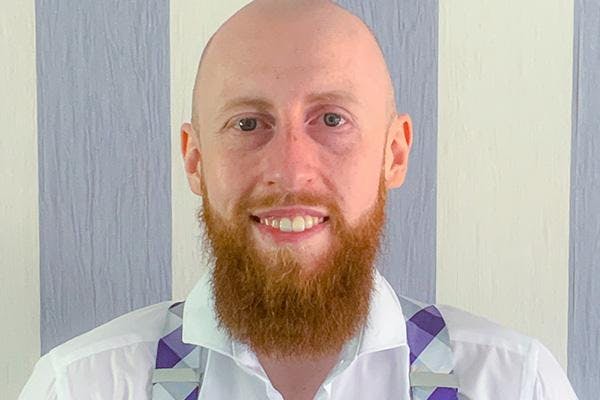
Hybrid working at Scott Logic
At Scott Logic, our hybrid working approach realises the potential of being productive from home along with the benefits of working in shared team environments and spending time with our clients.
Our consultants have always aligned their working patterns to the needs of our clients. And just as our clients have evolved to adapt to the impact of the pandemic on working patterns, we have evolved too. We’re learning and adapting, and will continue to listen to feedback and refine our hybrid working approach.
Principles of our hybrid working approach

Our People Promise
Working patterns should remain compatible with our People Promise: we don’t prioritise client delivery above the wellbeing of our people; and we don’t expect our people to work in locations that don’t suit their circumstances.

Trust
Scott Logic trusts consultants to do the right thing to discharge their role responsibilities. Consultants acknowledge that this may mean some variability in location from time to time to meet client and business needs.

Client focus
As a consultancy, due consideration must be given to client and team needs by all individuals, with a focus on collective productivity and quality.

Face to face
We become more meaningfully connected with one another through physically spending time together. These interactions significantly deepen and strengthen both our Scott Logic community and our client relationships. This may be collaborating in the same space, or it could be regularly socialising together.
How it works
You agree your general working pattern in discussion with your team if you’re a consultant, or your line manager if you’re not a consultant.
It’s important to note that circumstances may change—e.g. you may move on to a new team with different requirements, you may reach a different stage in your career, or your personal circumstances may change—so the working patterns you agree are not set in stone and can be reviewed as needed.
We want to offer you as much flexibility as you’re seeking; however, it’s important to strike the right balance with the needs of your team, Scott Logic and our clients. So, there’s a range of considerations that need to be factored into the discussion:

Alignment
Whether you’re working in the office or remotely, you will need to be available every weekday and ensure that you have time that overlaps with your team and the wider Scott Logic community. We expect people to align team working time to be available for meetings, for collaborative working and for other activities such as line management.
Facetime
We don’t support fully remote working at Scott Logic. We believe that everyone benefits—Scott Logic, your team and you—from regular face-to-face interactions. Broadly, we expect you to be in an office on average at least two days a week.
Office-based responsibilities
Some roles include responsibilities that require more time in the office in order to perform them effectively. To offer examples: the focus of your role may be on supporting the smooth running of the office, or you may have mentoring responsibilities.

Variability
There may be times in the calendar year or stages of a project where more or less than usual office-based working will be required, due to the levels of collaboration and teamwork involved – for example, during project initiation.

Alignment
Whether you’re working in the office or remotely, you will need to be available every weekday and ensure that you have time that overlaps with your team and the wider Scott Logic community. We expect people to align team working time to be available for meetings, for collaborative working and for other activities such as line management.
Office-based responsibilities
Some roles include responsibilities that require more time in the office in order to perform them effectively. To offer examples: the focus of your role may be on supporting the smooth running of the office, or you may have mentoring responsibilities.
Facetime
We don’t support fully remote working at Scott Logic. We believe that everyone benefits—Scott Logic, your team and you—from regular face-to-face interactions. Broadly, we expect you to be in an office on average at least two days a week.

Variability
There may be times in the calendar year or stages of a project where more or less than usual office-based working will be required, due to the levels of collaboration and teamwork involved – for example, during project initiation.
Agreeing your working patterns as a team of consultants
Our hybrid working approach is based on trust. It is up to teams to determine their own working pattern plan – one that works for the team, works for our business and works for our clients.
At the start of an engagement, your team will explicitly discuss and collectively agree on an approach to working patterns as part of a wider ‘ways of working’ conversation. You will be encouraged to state your individual preferences—factoring in the considerations around alignment, face time, office-based responsibilities and variability described above—and these will be accommodated as much as possible.
As a team, you will consider what kind of collaboration with the client is needed. We expect the client to understand our approach to working patterns and encourage them to input into the conversation.
Your team will then document its approach (e.g. as part of a team manifesto), so that there is clarity on when and where the team will come together.
Beyond your team, you’ll agree on a cadence of catchups with your line manager, including how and where to meet. We encourage you to meet face to face where possible. We also hold regular social events in and around our offices, as well as with our clients; and ad hoc get-togethers are also a big feature of life at Scott Logic. We encourage you to take part in these if they’re of interest and to plan your working pattern to accommodate this.
If you’d like to know more about roles and hybrid working at Scott Logic, we’d be happy to chat.
Drop an email to applications@scottlogic.com or you can take a look here at our current vacancies.
Meet some of the Scott Logic team

Nelly
Lead Developer, Newcastle
“The working culture in the Newcastle office is the perfect mixture of hard work and fun. It is very collaborative and supportive, I've learned so much from colleagues and being involved in various projects. Every day I'm learning something new and I just love that.”

Charles
Test Engineer, Bristol
“I was thrilled to be hired and was enrolled on the Graduate Programme... The great thing was all the graduates were located in the same open area of the office, so you could get feedback from someone who was coming to the end of the scheme or reach out for help from employees.”

David
Senior Developer, Edinburgh
“Working for a consultancy creates that variety. The ability to swap projects and technology from time to time, without the need to change jobs, keeps things constantly fresh and broadens your experience in a way that conventional roles don’t.”

